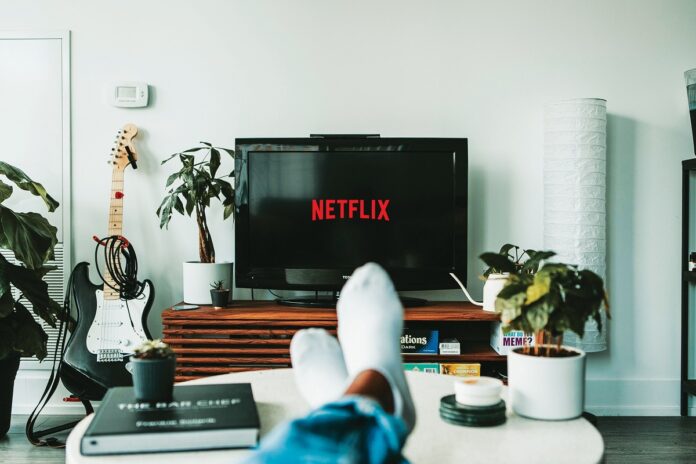As I write this, I am eating a bowl of Campbell’s Bean with Bacon Soup. Honestly. If I had a way to show this to you, I would. But it would have to be a tight shot, because I wouldn’t want you to see me in my pajama bottoms. (Yes, I wear them all day.)
I have found myself returning to some of my favorite childhood foods during the pandemic, when necessity requires I fend for myself and make my own meals. Prior to the pandemic, I single-handedly kept more than 1,000 restaurants profitable in the Los Angeles greater metropolitan area. I often got to the end of the month and analyzed my expenses and found myself aghast at how much I spent on dining out. I always shrugged. I am contributing to the economy, I repeatedly rationalized.
But today is a different world. People are doing strange things like cooking and staying home to watch television. I watched all episodes of The Queen’s Gambit—twice. I’m on my third go-around of Mad Men. And I can tell you everything about The Marvelous Mrs. Maisel.
I take comfort in some of the brands I’ve come to know through the years. Campbell’s Soup is at the top of that list.
The pandemic has caused Americans to rethink their brand loyalties. Two recent studies reflect these changes. Last July, global public relations firm Ketchum found 45 percent of American shoppers have changed their brand preferences during the pandemic. One month later, McKinsey Research pegged the number at a whopping 75 percent.
One school of thought holds that as major brands sold out or became unavailable, consumers turned toward their secondary choices. For instance, if a consumer couldn’t find Charmin on the shelf, they wouldn’t simply go without toilet paper. Instead, they switched brands.
Another hypothesis proposes during the strange new life of pandemic lockdown, consumers turned to old favorite brands they hadn’t purchased in years…like Campbell’s soups. The food giant reported a 17-percent jump in sales after the pandemic started. More dramatically, the soup category was up 52 percent according to the company’s most recent filings.
Sales were driven primarily “by the continued changes in consumer behaviors from COVID-19,” according to Mark Clouse, Campbell’s president and chief executive officer. “Consumers have gravitated to our trusted brands because of the quality, value, comfort, and versatility our products deliver.”
Phil Lempert, a food industry analyst at Supermarket Guru, said canned foods like Campbell’s flew off shelves because people hoarded grocery staples and bought whatever was available. But I think there is more to the story.
Nostalgia triggers a powerful emotional response. Brands we associate with our fondest memories tug at our heartstrings. Consumers react positively to nostalgic brands because warm memories help offset inner fears and stress. In short, nostalgic brands make people feel safe.
Legacy imprints dominated the list of consumer favorites reported in brand relationship strategist MBLM’s Brand Intimacy 2020 study, which measured the bonds between consumers and what they buy. Hershey’s ranked number one in the consumer goods category, followed by Kellogg’s. Other brands in the top ten were Nestlé, Campbell’s, Pillsbury, Quaker, Nabisco, Betty Crocker, and Stouffer’s.
“Consumers are taking solace in the foods of their childhood, which are bringing them back to the positive memories of their past,” the report concluded.
Netflix understood this desire to reconnect and added the television series Cobra Kai to its library. The show is based on a present-day continuation of the 1984 movie The Karate Kid. Episodes launched on YouTube in 2018 but eventually were cancelled. Sensing the nation was ready for a throwback story, Netflix wisely picked it up last June in the heat of the pandemic, and it quickly shot to the top-ranked spot.
Food isn’t the only thing tugging at our heartstrings. According to The Washington Post, the recent holiday’s hottest toys were decades old. Sales of Tonka’s Mighty Dump Truck were up more than 250 percent. Other big sellers included Hot Wheels and LEGO.
“Consumers are reaching for old-school favorites, positioning the toy industry for its best holiday season in years,” the article stated. “Parents are drawing on their own childhoods for inspiration.”
Budweiser also hit a home run using nostalgia with its mid-pandemic ad “Reunited with Buds.” The commercial features the company’s long-time favorite Clydesdale horses and picture-perfect puppies running together to reunite. The ad is set to a 1979 song by the band Queen and ends with a title card saying, “We can’t wait to see our buds, but when we do, let’s do it safely.”
What a powerful blend of nostalgia with a perfect pinch of pun.
Craig Mawdsley, joint chief strategy officer at creative agency Abbott Mead Vickers BBDO, wrote people are looking for two things right now: help and comfort. “But they also want joyful distractions—things to make them smile in times of hardship,” he asserted. The Budweiser ad hit on all counts.
As my favorite television character, Don Draper, put it in Mad Men, “In Greek, nostalgia literally means ‘the pain from an old wound.’ It’s a twinge in your heart more powerful than memory alone… It takes us to a place where we ache to go again. It lets us travel back home, to a place where we know we are loved.”
And sometimes a can of Campbell’s Bean with Bacon Soup is just the thing to put a smile on your face.

Randall Huft is president and creative director at Innovation Agency, an advertising, branding, and public relations firm specializing in the cannabis industry. While working with blue-chip companies including AT&T, United Airlines, IBM, Walgreens, American Express, Toyota, and Disney, he discovered what works, what doesn’t, and how to gain market share.












